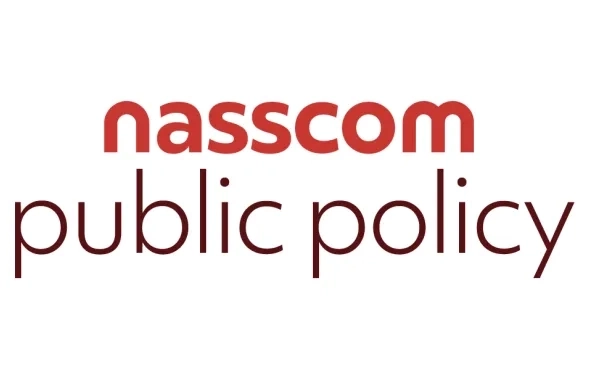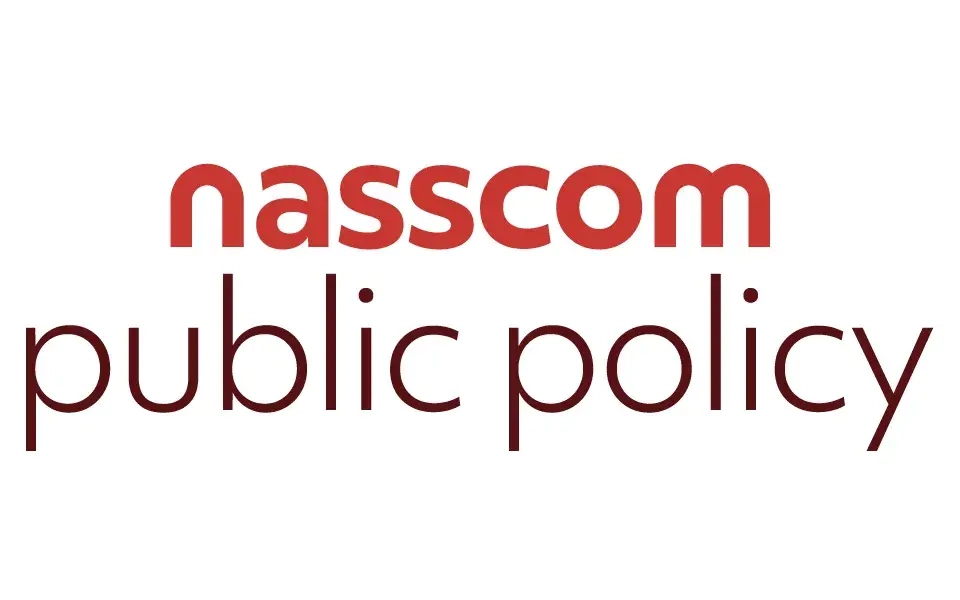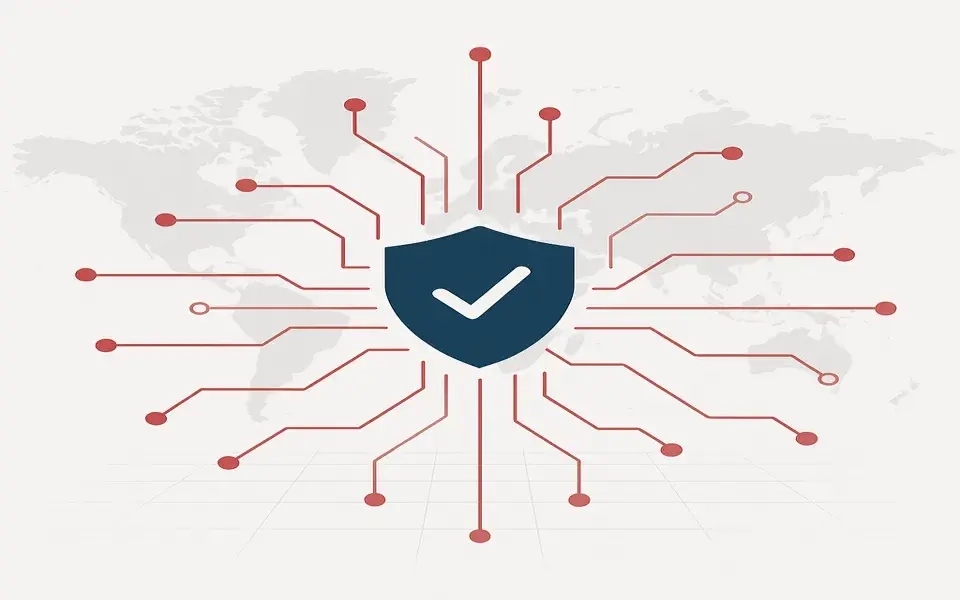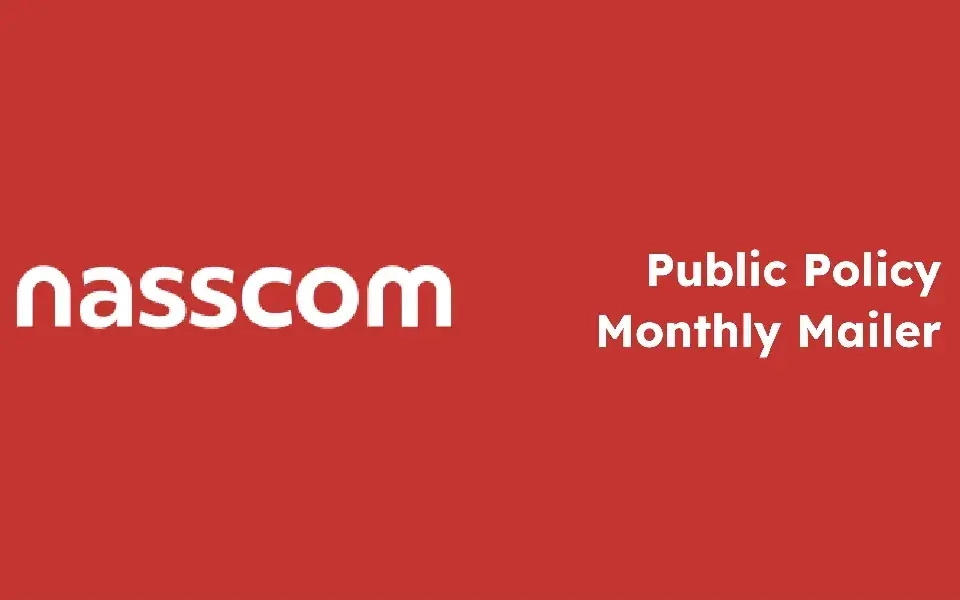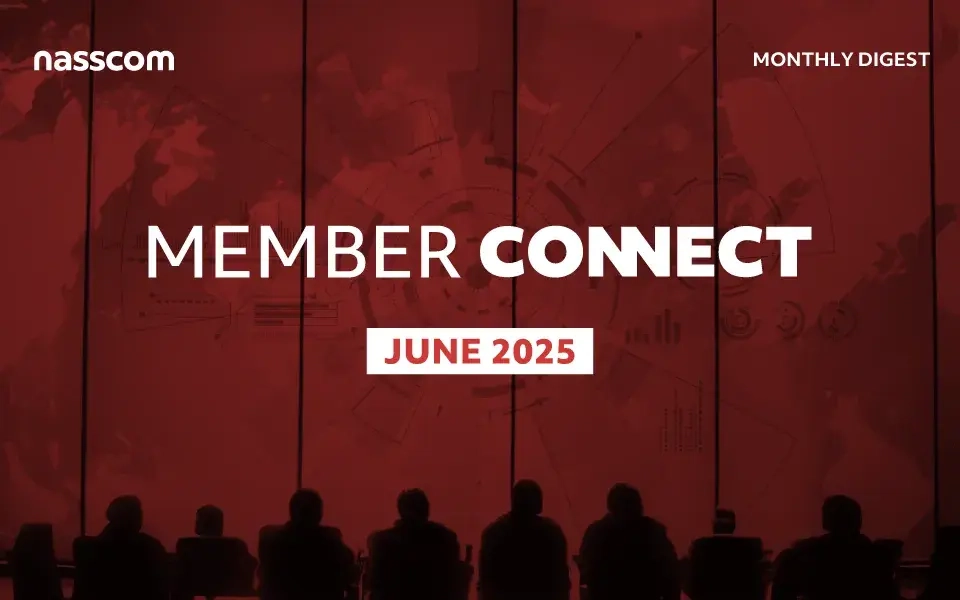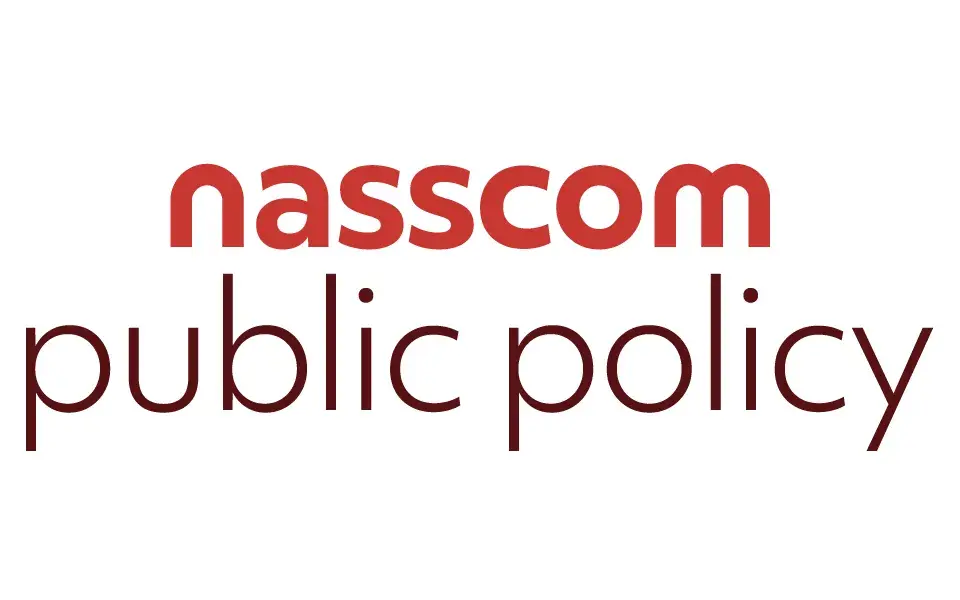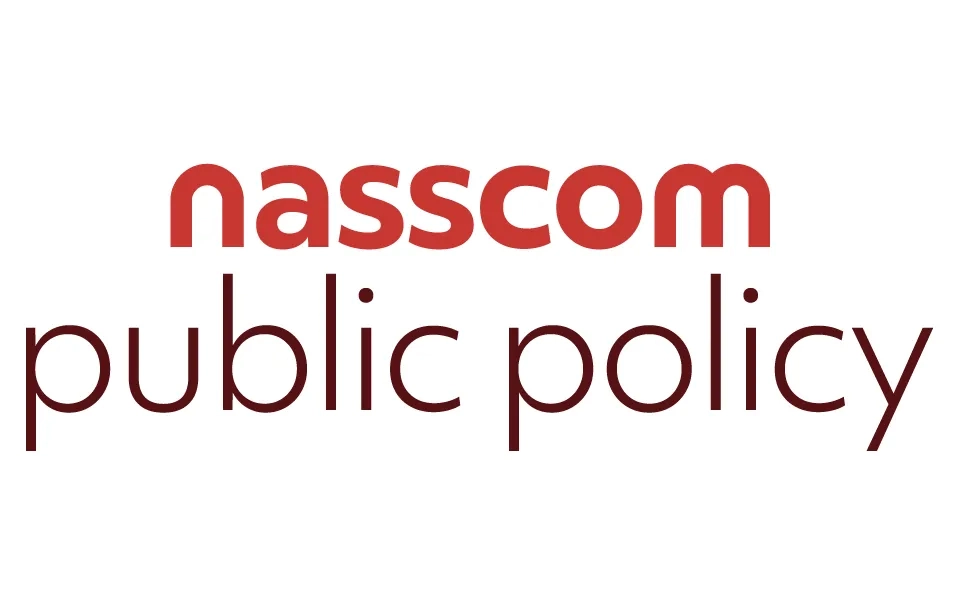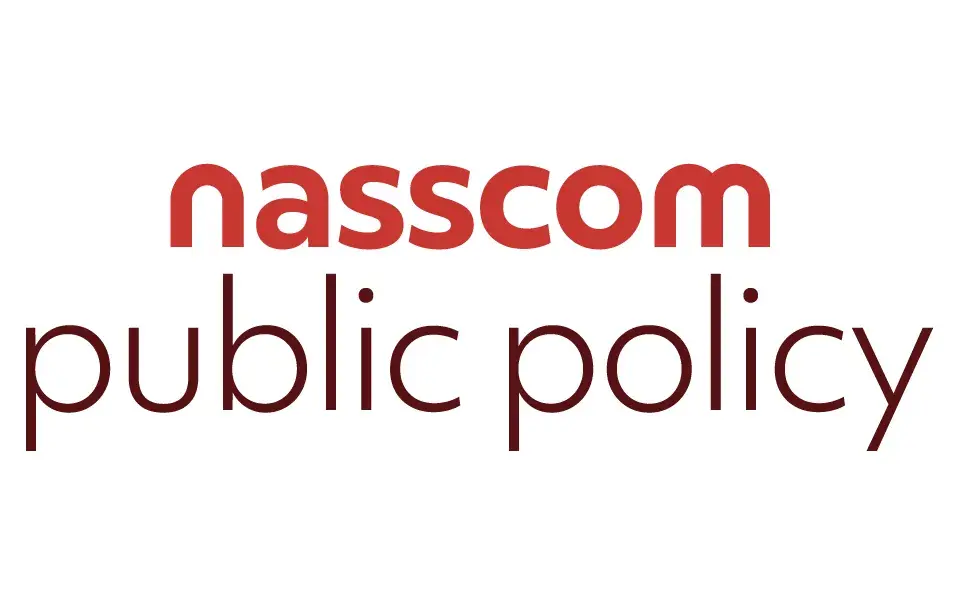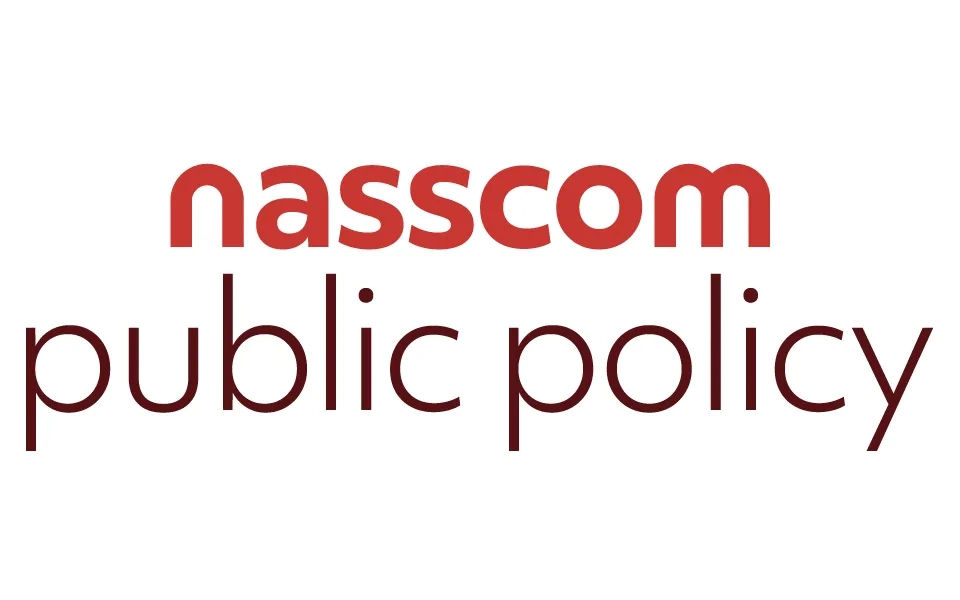
|
 |
|
|
|
NASSCOM Report: Suggestions on Goods and Services Tax (GST)
for creating a conducive environment for small sellers
|
|
NASSCOM has submitted a report to the Ministry of
Finance as well the State Governments with
recommendations on how the GST regime can be used to
create an all-inclusive ecosystem.
As part of the
report, we have requested the government to: (a) bring
parity between online and offline sellers by doing away
with the mandatory registration under GST for small
sellers, (b) allow such sellers to avail the benefits
under composition scheme, (c) permit a virtual place of
business for easing working capital, (d) strengthen
compliances, and (e) use technology to implement
guardrails to increase availability of data to the
government. These measures will encourage small sellers
to transform themselves into the organised sector and
promote entrepreneurship. The report also highlights the
evolution of e-commerce and its transition to 'Offline +
Online' models and the role played by small businesses.
|
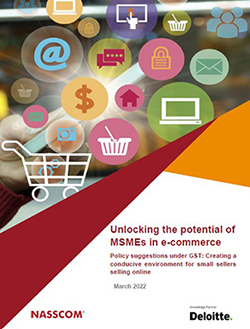
|
|
|
|
Read
More |
|
|
|
|
|
 |
|
|
|
Discussion with Ministry of Electronics and Information
Technology (MEITY) on data protection and measures to enable the
startup ecosystem |
|
We interacted with senior officials of MEITY on the draft
Data Protection Bill, 2021 (DPB) and
measures to enable the startup ecosystem in India. On the
DPB, we offered suggestions on: (a) making the approach to
protecting personal data scalable and citizen-centric, (b)
making the regulation of international data transfers more
risk-based and agile, and (c) enabling policy
interoperability with other jurisdictions' data protection
regimes. We also suggested taking up newer issues such as
software and hardware certification and non-personal data
separately.
On startups, we made suggestions based on
industry inputs, specifically for the FinTech, MedTech and
Cybersecurity startups. Our suggestions focused on removing
regulatory bottlenecks and enabling more innovation, for
example, by enabling recognition of blockchain based
signatures by making the regulatory framework technology
neutral, easing norms to enable FinTechs into factoring
business, enabling availability & access to high value
datasets to train Artificial Intelligence
(AI)/ Machine Learning
(ML) systems, building a brand India for
cybersecurity startups etc. For more information, write to
policy@nasscom.in.
|
|
|
|
|
|
Public procurement: Determination of local content for cloud
service |
|
|
We interacted with MEITY, along with the industry, to
discuss the mechanism to determine local content for cloud
services. MEITY has proposed a framework in which the local
content in various layers - Cloud, IT infrastructure and
basic infrastructure - will be evaluated to compute local
content. We are engaged with all empaneled cloud service
providers and other stakeholders to evaluate the proposal
and will share the industry view with MEITY soon. For more
information, write to jayakumar@nasscom.in.
|
|
|
|
|
|
Knowledge Session on DPB for NASSCOM Global Capability Centre
(GCC) Meet |
|
|
At the NASSCOM Northern Capital Region
(NCR) GCC Meet, we made a presentation
highlighting the changes that have been proposed in DPB by
the Joint Parliamentary Committee Report. The presentation
focused on (a) new subjects introduced in DPB - such as
frameworks for hardware/software certification; (b)
regulation of international data transfers; and (3) review
of the DPB from a data adequacy perspective. |
|
|
Read
More |
|
|
|
|
|
|
 |
|
|
|
Non-Personal Data: India Data Accessibility and Use Policy
|
|
|
We submitted suggestions on the draft 'India Data Accessibility and Use
Policy' (IDAUP) published by MEITY. The IDAUP aims to
establish a new governance framework on sharing non-personal data in the
public sector. Our suggestions focused on better defining the material
scope, resolving jurisdictional overlaps with existing frameworks,
better securing data quality to make public sector data more re-usable,
introducing a phased and structured implementation plan, and bringing in
well-defined safeguards to preserve privacy and security. |
|
|
Read
More |
|
|
|
|
SEBI: Response to Consultation Paper on Disclosures for 'basis
of issue price' section of offer document |
|
|
We responded to the Securities Exchange Board of India
(SEBI) Consultation Paper on Disclosures for 'Basis of
Issue Price' section in offer document under SEBI (Issue of Capital and
Disclosure Requirements) Regulations, 2018. Our suggestions included,
the need to review the proposal requiring demonstration of the linkage
of Key Performance Indicators (KPI) with the issue
price, need for guidelines by SEBI on the manner in which KPIs need to
be disclosed, voluntary disclosure of KPIs for a initial few years,
matching the look-back period for KPIs with the period for which
financial metrics have been disclosed etc. |
|
|
Read
More |
|
|
|
|
Telecommunication Engineering Center (TEC): Fairness Assessment
for AI/ML Systems |
|
|
We submitted feedback to the paper published by TEC on the development
of a Framework for Fairness Assessment of AI/ML Systems. Among other
things, we have provided input on the various fairness metrics used by
the industry and explained the challenges in arriving at a
classification system of AI/ML systems for the purpose of fairness
assessment. We noted that 'fairness' is a normative concept with no
universal definition and is context dependent. Given that the concept of
'fairness' has not reached a stage of sufficient clarity, we are of the
view that standards cannot be prescribed even if meant to be adopted
voluntarily. |
|
|
Read
More |
|
|
|
|
Ministry of Finance (MoF): Post Budget Memorandum 2022-23
|
|
|
We have submitted a detailed post budget memorandum to MoF highlighting
the concerns and recommendations to strengthen the Budget 2022-23
proposals. Our suggestions include, need for clarity on the definition
of virtual digital asset and challenges around valuation and computation
of income arising from transfer of such assets, withdrawal of amendment
on application of 'source of source' in case of loans or borrowings,
bringing parity in the tax rates on long term capital gains on sale of
shares of unlisted companies for resident investors and non-resident
investors etc. |
|
|
Read
More |
|
|
|
|
Labour Reforms: Feedback on Telangana State Rules |
|
|
We made a submission to the Government of Telangana on the draft
Occupational Safety, Health and Working Conditions Rules (OSHW
Rules) and Social Security Rules (SS
Rules). On OSHW Rules, we proposed deletion of certain
mandatory particulars such as Aadhaar, ESIS/UAN etc. from the
appointment letter. We also recommended changes in the daily working
hours limit to enable employers to adopt flexible working models. On
Social Security rules, we sought clarity on implementation of some of
the provisions related to class of employers that are required to
maintain notice book, timeline for the payment of cess etc. For more
information, write to deepak@nasscom.in. |
|
|
|
|
Ministry of Corporate Affairs (MCA): Request for clarity in
provisions related to accounting software to be adopted by companies
|
|
|
The Companies Act, 2013 requires a company using accounting software to
maintain its books of account in such accounting software which can
record audit trail of every transaction and create edit log of changes
made. This requirement needs to be complied with effect from April 1,
2022. In this regard, we made a submission to MCA requesting clarity on
certain aspects like definition of accounting software, details required
as part of audit trail and edit log etc. We also requested that
reasonable time be given to the industry to incorporate the changes in
their accounting software. |
|
|
Read
More |
|
|
|
|
Organisation for Economic Co-operation and Development (OECD):
Submission on Pillar One Amount A Tax base determination
|
|
|
We responded to OECD's Consultation Paper on Pillar One Amount A Tax
Base Determination. Our submission includes request to provide an
opportunity to stakeholders for giving inputs on unresolved
issues/policy decisions/components which will be clarified in commentary
once consensus has been reached. We have also requested OECD to provide
an exhaustive list of expenses that will be disallowed while calculating
the financial accounting profit/loss. We have also shared this
submission with MoF. |
|
|
Read
More |
|
|
|
|
MCA: Request for amendment in requiring Independent Directors to
pass Online Proficiency self-assessment test |
|
|
We approached MCA to request exemption of certain class of foreign
directors from the requirement to pass the online proficiency
self-assessment test, which is otherwise required under the Companies
Act, 2013 and the rules thereunder. Subjecting foreign directors with
relevant experience to pass the proficiency test may not be necessary
and adds to the compliance burden. |
|
|
Read
More |
|
|
|
|
|
|
|
|
|
|
Telecom Regulatory Authority of India (TRAI): Paper on Use of street
furniture for small cell and aerial fiber deployment |
|
|
We seek industry's inputs on the recently released consultation paper by TRAI on
'Use of Street Furniture For Small Cell and Aerial Fiber Deployment'. The paper
aims to understand the challenges related to outdoor small cell deployments and
use of street furniture for small cell, and aerial fiber deployment for the
successful rollout of next generation networks in the country. The paper seeks
suggestions on amendments to the existing right of way regulatory framework for
aerial fiber deployment and other related matters. Industry is requested to
share inputs to deepak@nasscom.in by
April 11, 2022. |
|
|
Read
More |
|
|
|
|
TRAI: Paper on Rating of buildings or areas for digital
connectivity |
|
|
We seek industry's inputs on the recently released consultation paper by TRAI on
'Rating of Buildings or Areas for Digital Connectivity'. The paper stresses on
the importance of good quality of telecom services in building complexes and
areas and thus seeks suggestions towards introducing digital infrastructure
evaluation matrix for building and areas based on users experience amongst other
related matters. Industry is requested to share inputs to deepak@nasscom.in and jayakumar@nasscom.in by April 24,
2022. |
|
|
Read
More |
|
|
|
|
Start-ups: Policy paper on strengthening the start-up ecosystem
|
|
|
NASSCOM, in partnership with TiE Delhi-NCR and Grant Thornton Bharat, is
finalising a policy paper to highlight the concerns faced by start-ups,
founders, and investors at various stages of a start-up's growth journey. The
paper will also present the findings of the survey conducted by us in August
2021. The aim of this paper is to provide recommendations to the government on
issues such as access to domestic and international capital, innovative ways of
raising capital etc. For more information, write to garima@nasscom.in. |
|
|
|
|
Assessing the impact of UK-India FTA on digital trade |
|
|
As part of our engagement with the industry and the government in both India and
UK for the upcoming India-UK Free Trade Agreement (FTA), we are
seeking inputs from the industry on the following: (1) top priorities for a
future trade deal between India and UK, especially pertaining to digital trade;
(2) challenges being faced while trading with the UK; (3) recommendations for
improving digital trade between India and the UK, and (4) estimated impact of
India-UK trade deal on the industry. We are gathering inputs via a survey and
interviews, as appropriate. To share your inputs, kindly click here. For
more information, write to garima@nasscom.in. |
|
|
|
|
 |
|
|
|
SEZ: Extension of WFH timelines for IT/ITeS companies
|
|
|
In lieu of the Covid-19 pandemic, the SEZ authorities of Maharashtra and Tamil Nadu have extended the WFH facility for
the IT/ITeS units till June 30, 2022. Beyond this period, the Santacruz
Electronic Export Processing Zone (SEEPZ) Authority in
Maharashtra has directed units to resume operations with 50% workforce
from office till August 31, 2022, and 100% from September 1, 2022.
Earlier, we had written to the SEZ authorities seeking extensions of WFH
timelines towards safety of IT employees employed by the SEZ units. For
more information, write to deepak@nasscom.in. |
|
|
|
|
Ministry of Commerce and Industry unveiled the signed
India-United Arab Emirates (UAE) Comprehensive Economic Partnership
Agreement (CEPA) |
|
|
On March 28, 2022, Hon'ble Minister of Commerce and Industry released
the text of the India-UAE CEPA. This agreement is expected to come into
effect from May 1, 2022. This is the first comprehensive free trade
agreement signed by India with any country in the last decade. The
Agreement incorporates a separate chapter on 'digital trade', with
commitments on personal data protection, cross-border flow of data,
paperless trading, customs duties on electronic transmission, digital
identities, online consumer protection, open data, digital government
etc. Access the text of the agreement here. For more information, write to garima@nasscom.in. |
|
|
|
|
Reserve Bank of India (RBI): Framework for Geo-Tagging of
Payment System Touch Points |
|
|
RBI has launched framework for geo-tagging of payment system
touch points to deepen digital payments and inclusive access to citizens
through robust digital payment infrastructure. Geo-tagging of payment
system touch points will enable proper monitoring of availability of
payment acceptance infrastructure like Points of Sale
(PoS) terminals, Quick response (QR)
codes among others. Under this framework, all banks and non-bank payment
system operators are required to capture and maintain geographical
coordinates for all payment touch points. For more information, write to
apurva@nasscom.in. |
|
|
|
|
RBI launches UPI for feature phones (UPI123PAY) and 24*7
helpline for digital payments (DIGISAATHI) |
|
|
On March 8, 2022, RBI launched two key initiatives - UPI123Pay to make
UPI payments for feature phones and DigiSaathi - a 24*7 helpline to
address queries of digital payment users across products. These
initiatives have been launched with the aim of deepening digital
ecosystem and promoting financial inclusion. UPI123Pay shall be based on
four functionalities - App based, missed call, interactive voice
response, and proximity sound-based payments. Prior to this, in January
2022, RBI had launched a framework for facilitating small value digital
payments in offline mode. |
|
|
Read
More |
|
|
|
|
|
|
|




